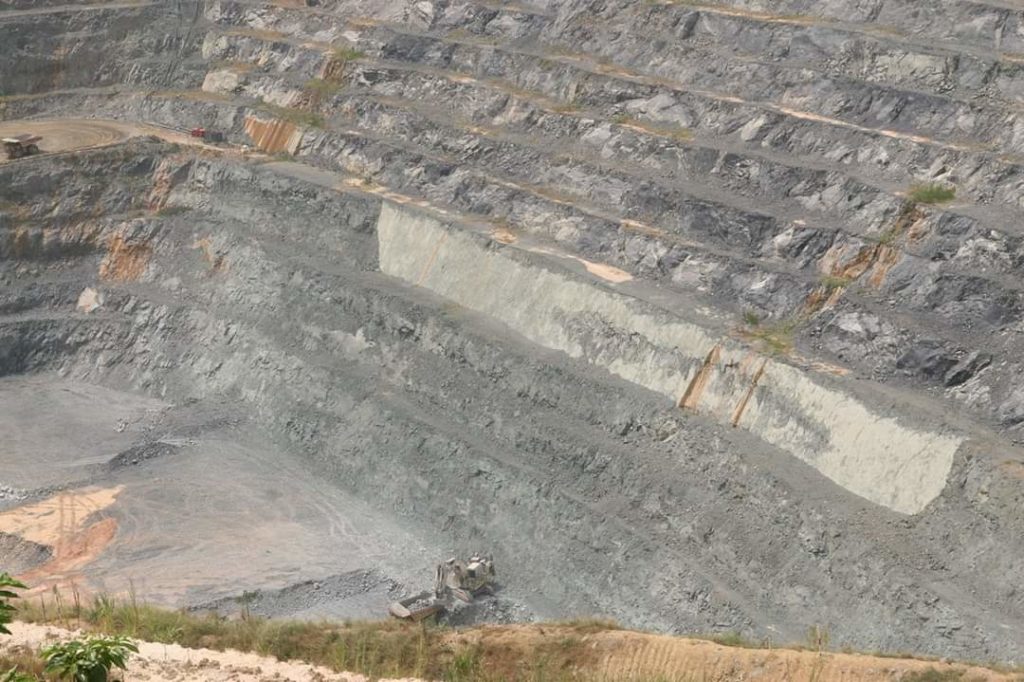How Ghana lost top gold producer in Africa position to South Africa in three years

Mining has been going on in Ghana for more than 100 years. Ghana earned its largest foreign exchange from the export of gold for a very long time, especially in periods when the world market prices of gold go up. At the end of June 2022, the country’s earnings from gold went up by 13.1 per cent, bringing in $3 billion.
Ghana government officials say the mining sector currently contributes approximately 41 per cent of the country’s total export earnings, 14 per cent of total tax revenues, and 5.5 per cent of GDP.
They also say gold contributes over 90 per cent of the country’s total mineral exports and makes up 49 per cent of total export value.
Three years ago in 2019, Ghana became the largest gold producer in Africa, toppling South Africa, data released by the World Bank showed.
According to the data Ghana exported 158 tonnes of gold in 2018, about 15 per cent increase over the previous year, and as a result went ahead of South Africa, which produced 139.3 tonnes.
But just about a month ago in June, it was announced that gold production in Ghana has dropped by 30 per cent in 2021 – the country’s lowest in more than 10 years, and that effectively knocked off the country from the top spot as Africa’s leading producer, sending South Africa back to the top spot.
In 2020 Ghana introduced a 3 per cent withholding tax on small-scale mining – and the sector which contributes a third of the country’s gold production was hit hard. The miners started smuggling the precious mineral, reducing official gold production volumes. The miners were required to pay 3 per cent withholding tax on gold at the point of export through the Precious Minerals Marketing Company (PMMC).
There have always been discrepancies in Ghana gold records. There are official and unofficial records – with the unofficial records always showing higher values of gold exports than the official.
For instance, in April 2017, the then Ghana Minister of Lands and Natural Resources, John Peter Amewu estimated that $2.3 billion worth of illegally-mined gold left Ghana in 2016, while the country earned $3.2 billion from official gold exports in 2015.
Soon after the new tax was introduced, the country’s gold output fell to 2.818 million ounces in 2021 – the lowest level since 2008 – from 4.022 million ounces in 2020.
Even though, there was a 12 per cent drop in production in 2020, Ghana still remained Africa’s top producer.
In January 2022 however, the government in response to the fall in production numbers scrapped the 3 per cent withholding tax on gold at the point of export and instead introduced a 1.5 per cent tax on unprocessed gold.
While gold production continues to be a very significant component of Ghana’s foreign exchange earnings, the impacts of gold mining on Ghana, particularly on mining communities have been mixed.
In an interview with Ghana Business News earlier in 2022, a Research Scientist, Dr AK Mensah has said the mining communities in Ghana are the embodiment of evidence of bad roads, deplorable school structures, land degradation, water pollution, and varied social impacts.
He added that looking at mining communities such as those in Obuasi, Prestea, Konongo, Bibiani, one can argue that the beneficial impacts of mining in Ghana, even if there are any, have been that on the central government in improving its revenues and foreign exchange earnings but real positive benefits on host mining communities are minimal.
Indeed, a visit to the township of Obuasi spits out a depressing effect. The town where gold has been mined for over 100 years looks nothing close to a wealthy town. Indeed, travelling from the Ashanti Regional capital of Kumasi to Obuasi is a nightmare. There are no industries in Obuasi, no jobs and fewer roads.
But on the other hand, the mining companies make huge profits, especially, when gold prices go up. And as Ghana has a system that allows multinationals to expatriate capital, a large chunk of the income from mining leaves the country.
It’s not known how much the gold mining companies in Ghana put together make. They do not also disclose their incomes publicly, only a few do so voluntarily in their home countries where the laws require that they do so, and those publicly listed also do announce how much they make every year.
However, the top 40 mining companies operating in Africa reportedly made net profits of about $110 billion in 2010 alone. And these companies have a net asset base which exceeds $1trillion.
Ghana should not only strive to be a leading gold producer in Africa, but the country should make efforts to streamline its mining and disclosure laws to ensure transparency as well as benefits for the country, especially mining communities.
By Emmanuel K. Dogbevi
Copyright ©2022 by NewsBridge Africa
All rights reserved. This article or any portion thereof may not be reproduced or used in any manner whatsoever without the express written permission of the publisher except for the use of brief quotations in reviews.
